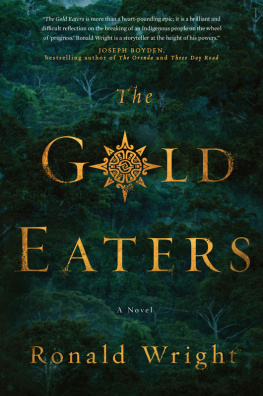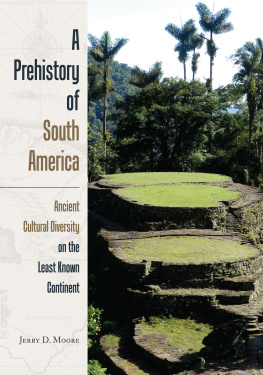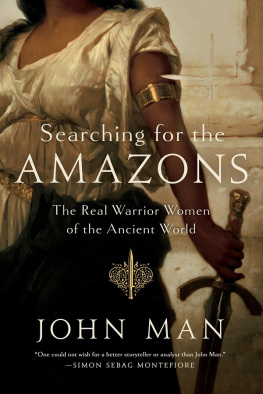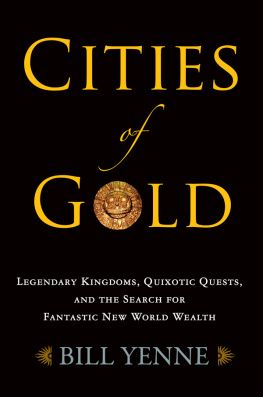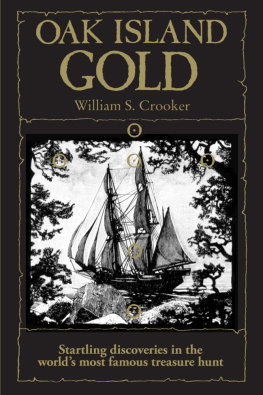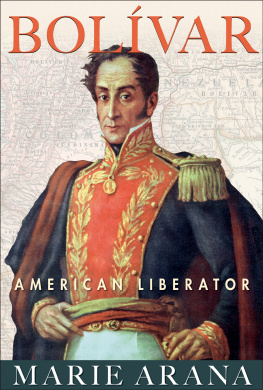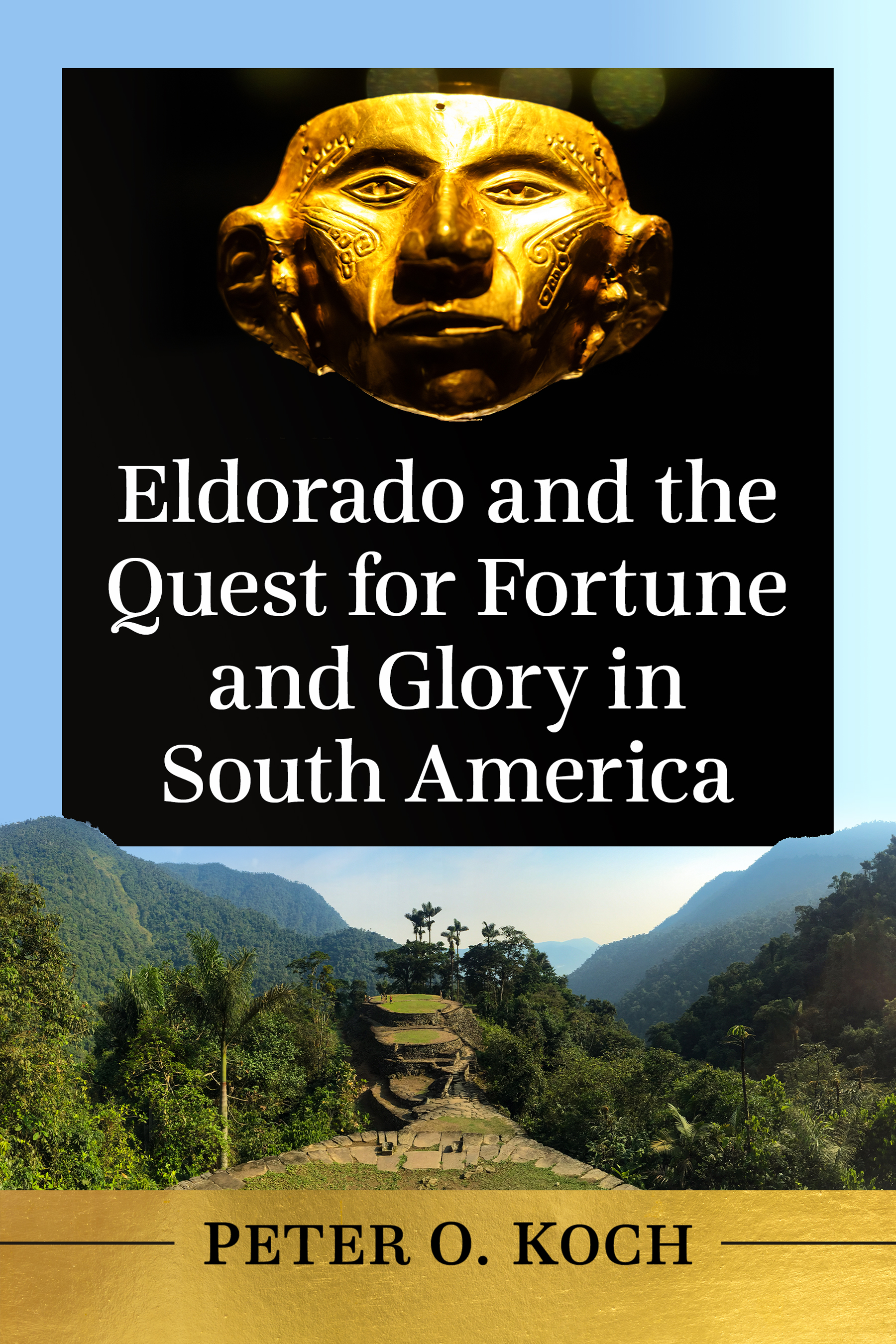Eldorado and the Quest for Fortune and Glory in South America
Also by Peter O. Koch and from McFarland
William Hickling Prescott: The Life and Letters of Americas First Scientific Historian (2016)
John Lloyd Stephens and Frederick Catherwood: Pioneers of Mayan Archaeology (2013)
Imaginary Cities of Gold: The Spanish Quest for Treasure in North America (2009)
The Spanish Conquest of the Inca Empire (2008)
The Aztecs, the Conquistadors, and the Making of Mexican Culture (2006)
To the Ends of the Earth: The Age of the European Explorers (2003)
Eldorado and the Quest for Fortune and Glory in South America
Peter O. Koch

McFarland & Company, Inc., Publishers
Jefferson, North Carolina
ISBN (print) 978-1-4766-8487-1
ISBN (ebook) 978-1-4766-4254-3
Library of Congress and British Library cataloguing data are available
Library of Congress Control Number 2021024762
2021 Peter O. Koch. All rights reserved
No part of this book may be reproduced or transmitted in any form or by any means, electronic or mechanical, including photocopying or recording, or by any information storage and retrieval system, without permission in writing from the publisher.
Front cover: Gold artifact on display in the Museo del Oro in Bogot, Colombia ( 2021 Shutterstock / Milosz Maslanka); the Ciudad Perdida (Lost City) in Magdalena, Colombia ( 2021 Shutterstock / Alexandre Laprise).
Printed in the United States of America
McFarland & Company, Inc., Publishers
Box 611, Jefferson, North Carolina 28640
www.mcfarlandpub.com
To my beloved wife, Abelene Bilan Koch,who has shared my adventures in spirit and in person
No other race can be found which can penetrate through such rugged lands, such dense forests, such great mountains and deserts, and over such broad rivers as the Spaniards have done without help from others, solely by the valor of their persons and the forcefulness of their breed.
Pedro de Cieza de Len
The difficulties of penetrating into these countries, where the path is to be broken for the first time, can only be conceived by one who has traveled over the roads already trodden. The broken and precipitous mountain trackthe deep morassthe thick and tangled forestthe danger from the Indians, wild beasts, and reptilesthe scarcity of provisionsthe exposure to the almost appalling rainsand the navigation of the impetuous and rock-obstructed river, threatening at every moment shipwreck to the frail canoeform obstacles that might daunt any heart but that of the gold-hunter or the missionary.
William Lewis Herndon
Shadow, said he,
Where can it be
This land of Eldorado
Over the Mountains
Of the Moon,
Down the Valley of the Shadow,
Ride, boldly ride,
The shade replied,
If you seek for Eldorado!
Edgar Allan Poe
. Robert Silverberg, The Golden Dream: Seekers of El Dorado (Athens: Ohio University Press, 1996), 144.
. William Lewis Herndon, Lieutenant United States Navy. Exploration of the Valley of the Amazon (Washington, D.C.: Robert Armstrong, Public Printer, 1854), 1718.
. Edgar Allan Poe, The Unabridged Edgar Allan Poe (Philadelphia: Running Press, 1983), 1163.
Table of Contents
Introduction
In February of 1539, three separate European expeditions converged along a plateau in the Andes Mountains of central Colombia. These soldiers of fortune had set out from three different locations in search of a great treasure rumored to eclipse the extraordinary amount of gold and silver that fellow conquistadors had plundered during the recent conquests of the mighty empires forged by the Aztecs of Mexico and the Incas of Peru. To the many Spaniards who migrated to the New World during the early 16th century, the Americas appeared to be a vast realm of untold riches just waiting to be discovered, and there was certainly no shortage of ambitious and stouthearted men willing to risk everything, including their lives, for the chance to find fortune and glory.
From the distant Incan city of Quito there arrived an army of conquistadors led by Sebastin de Benalczar, a veteran conquistador determined to find the legendary realm of El Dorado, a Golden Man who lorded over Eldorado, a Golden City blessed with such an abundance of precious gold that its ruler would periodically cover himself entirely in gold dust prior to undertaking an elaborate ritual bath in a lake awash with a treasure trove of golden offerings accumulated over time.
The origin of the El Dorado tale can be traced to the coronation ceremonies of the Chibcha Indians, a tribe also known as the Muisca. The conquistadors of South America were told that a new chief of this distant region participated in an extravagant ritual in which his naked body was covered with a sticky resin and then coated from head to toe with finely ground gold dust. Afterwards, the golden chief was ceremoniously rowed out from a cave in a large reed raft to the very center of the sacred lake so that he could make an offering to the ancient deity that dwelled at the bottom of the lake. His loyal subjects encircled the rim of this hallowed lake, and each member of the tribe held a valuable item that was to be cast into the water as an offering to the fiery serpent-deity below. All solemnly looked on as the chief submerged himself until his body shed sparkling specks of gold that briefly fluttered atop the sacred water before sinking slowly down the great depths of the lake. Once the anointed chief had thoroughly washed off his splendid coating of precious gold and returned to shore, the reverent spectators hurled their golden trinkets and elegant emeralds into the water, an act which thereby confirmed him as their Grand Zipa.
Stories of the coronation of a new Chibcha chief quickly evolved into the oft-told tale of an omnipotent native ruler who lorded over a distant city made almost entirely of gold, and who bathed daily in a vast lake named Guatavita, a body of water laden with gold dust, precious stones, and numerous other valuable items. Located in Colombia, Lake Guatavita, which came to be known as the Lake of El Dorado, is believed to be a naturally formed sinkhole. Many conquistadors convinced themselves that another native empire awaited their discovery, one which surpassed the immense wealth of either the Aztec or Incan empires.
Tales of a mighty chief who lorded over a golden realm did not seem terribly far fetched to the conquistadors. Many who heard this intriguing tale of riches that awaited at Eldorado, including Sebastin de Benalczar, were veterans of the conquest of Peru, and had seen with their own eyes the lavish amount of gold and silver summoned as ransom for the imprisoned Atahualpa, the Inca ruler who had been captured by Francisco Pizarro and his small army. Many had viewed the wealth of precious metals stored at the city of Cuzco, the Inca capital, and knew that many of the tribes who paid tribute to their Inca overlords had an abundance of gold and silver, much of which was worked into remarkable pieces of jewelry by highly skilled craftsmen. In addition, there were a few Spaniards who had served under Hernn Corts during the epic conquest of the Aztec empire and had had an opportunity to marvel at the wealth of tribute collected and stored at Tenochtitln. It therefore stood to reason that there were surely other rich native kingdoms that had not been conquered by the Incas. These rumors seemed credible enough for Sebastin de Benalczar and his troops to abandon their post at Quito and seek out the distant realm of El Dorado.


